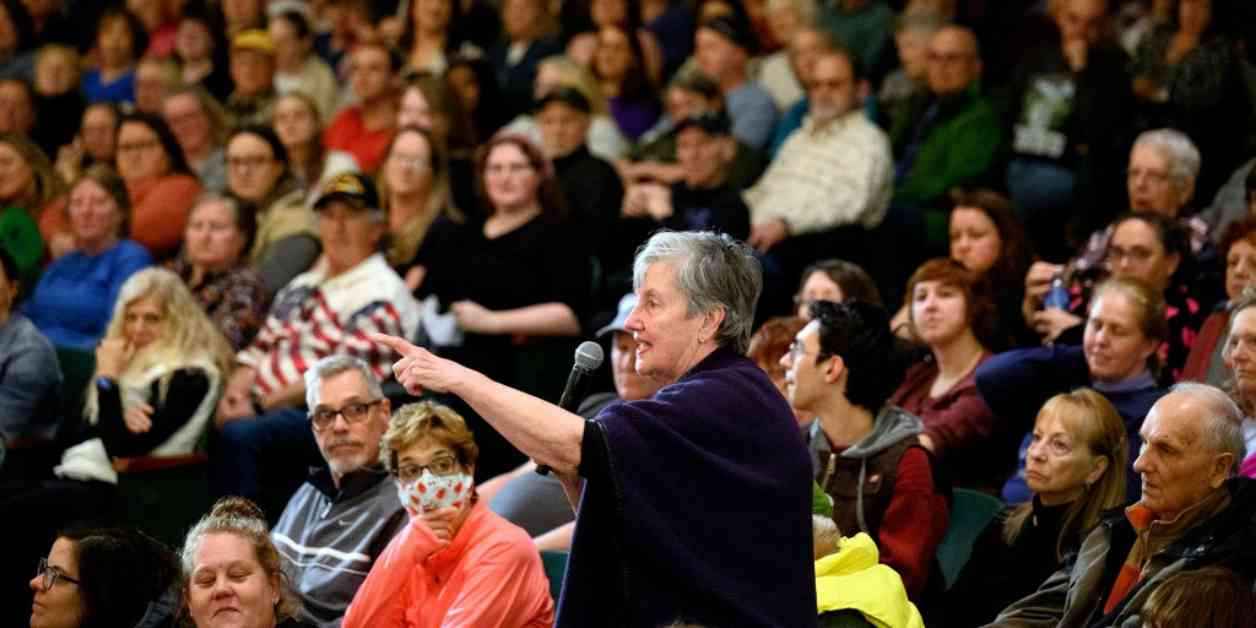Members of Congress are back in their districts for a two-week recess, potentially bracing for more anger from constituents. But voters in Republican districts might not have much of a chance to question their representatives. Weeks after Rep. Richard Hudson, the chair of the National Republican Congressional Committee, advised Republican members of Congress not to hold in-person town halls, it appears that most of them are heeding his advice.
The majority of town halls and town hall-style events taking place over the congressional recess will be hosted by Democrats, signaling a shift in accessibility and transparency between political parties. One of the few Republicans who have publicly advised that they’ll be holding town halls include Reps. Marjorie Taylor Greene of Georgia and Byron Donalds of Florida. These limited appearances are met with mixed reactions due to the recent turmoil surrounding the Trump administration’s policies and budget cuts.
Republicans Face Public Ire:
Since the last recess, Republican members of the House and Senate have been under scrutiny for their votes on a new budget blueprint that could lead to significant spending cuts in areas such as Medicare and Medicaid. This controversial decision has sparked anger among constituents, resulting in tense town hall events where lawmakers like Rep. Keith Self, R-Texas, and Sen. Roger Marshall, R-Kan., faced backlash from the public. The decision by Reps. Greene and Donalds to host town halls with restricted registration highlights the delicate balance between engaging with constituents and facing potential backlash.
Rep. Chuck Edwards, R-N.C., and Rep. Harriet Hageman, R-Wyo., have also experienced heated confrontations with constituents at recent town hall events, showcasing the growing frustration and demands for accountability from elected officials. Despite these challenges, the source close to Hudson revealed that the NRCC chairman has remained silent on the issue of town halls since his initial advice in March, leaving many Republican lawmakers to navigate these interactions independently.
Democrats Respond with Alternative Approach:
While Republicans navigate the complexities of engaging with constituents during the recess, over a dozen Democratic lawmakers are planning their own events in their districts, seeking to address the concerns of voters dissatisfied with the current political landscape. The strategy of hosting “People’s Town Halls” in Republican-held districts aims to provide a platform for constituents to voice their grievances and demand accountability from elected officials.
The recent “Fighting Oligarchy” tour led by Sen. Bernie Sanders, I-Vt., and Rep. Alexandria Ocasio-Cortez, D-N.Y., has drawn massive crowds and sparked conversations about the direction of the country under the current administration. Sanders and Ocasio-Cortez’s impassioned speeches denouncing Trump, congressional Republicans, and Democrats have resonated with thousands of attendees, highlighting the growing calls for political action and reform.
The upcoming two-week recess will see Democrats continue their efforts to connect with constituents in key districts represented by Republicans, emphasizing the importance of transparency and engagement in the political process. Rep. Suzan DelBene, the chair of the Democratic Congressional Campaign Committee, has expressed the party’s commitment to addressing the needs of voters and holding vulnerable Republicans accountable for their decisions that impact working families.
As members of Congress navigate the complexities of engaging with constituents during the recess, the divide between political parties and the demands of an increasingly vocal electorate underscore the challenges and opportunities for meaningful dialogue and change in the political landscape. The upcoming town hall events, rallies, and tours led by both Republicans and Democrats will shape the narrative of accountability, transparency, and responsiveness in the months ahead, as voters seek to make their voices heard and demand action from their elected representatives.














